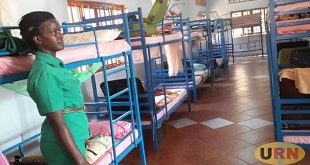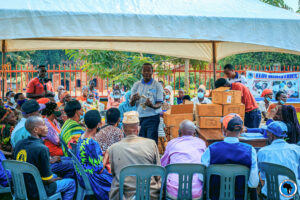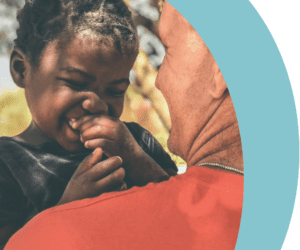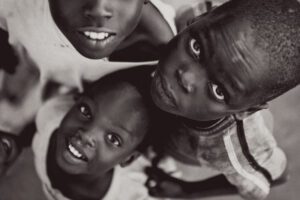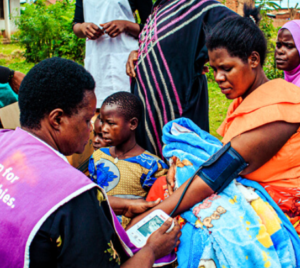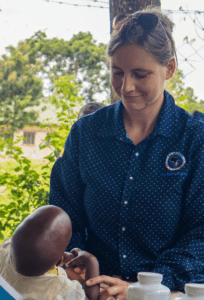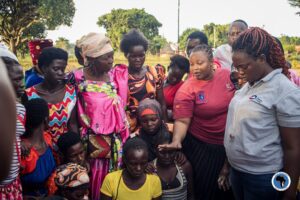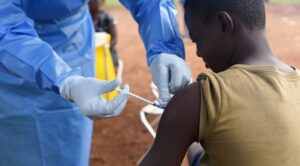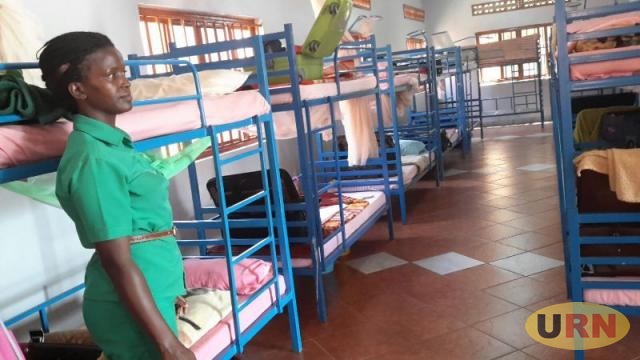
SPECIAL REPORT | THE INDEPENDENT | Several academicians and education experts have cautioned that the newly issued guidelines concerning boarding sections in schools and other institutions are unlikely to bring about the anticipated changes.
The “new tough guidelines” in question were issued on Wednesday after a ministry circular alerting school administrators to the rigorous enforcement of standards. The circular emphasized the closure of illegal boarding sections and those not meeting the required standards during the second term.
Dr. Godfrey Bakaira, a veteran academician and lecturer of education at Kyambogo, criticizes what he sees as yet another trend by the Ministry to issue guidelines without following up or enforcing them consistently.
“Monitoring and support supervision regarding boarding sections and education matters in general cannot be treated as a one-off event. The ministry has historically paid lip service to this essential aspect of education, often issuing documents merely to cover their backs in the event of incidents occurring in schools. And this episode of tough guideline is no different,” Dr Bakaira said adding that there is nothing as “new or tough” in the released set of documents.
As pointed out, many of the guidelines are not new, as they already exist in previous ministry documents, including the “2009 Basic Requirements and Minimum Standards Indicators for Education Institutions”. This document extensively outlines indicators for the management and organization of boarding sections, covering everything from necessary facilities and equipment to human resources.
The crucial question remains: what enforcement measures will the ministry undertake this time, distinguishing its actions from its approach since the inception of these guidelines? Despite repeated assurances of strictness and subsequent public relations efforts following incidents like school fires, tangible improvements have yet to materialize over the years.
Ironically, numerous schools have obtained licenses and continue to operate despite not meeting several of the indicators outlined by the ministry. This fact was explicitly acknowledged in the ministry’s circular released on April 19, 2024.
“Despite the several communications…, the inspection and monitoring reports still find that most institutions and schools have continued to operate illegal or below the expected standards which has led to both loss of property and lives in addition to compromising health and sanitation,” the circular signed off the by permanent secretary reads in part.
Just as all previous circulars on the subject, the latest communication from the ministry indicates plans for inspections during the second term, with assurances of “appropriate actions” against those falling short of standards.
However, Mike Bossa, a resident of Nansana municipality, dismissed the circular, suggesting it should be termed a “circus” instead. Bossa pointed to a pattern of warnings issued over the years without meaningful follow-up, questioning what would make this time any different.
“What significant event has occurred to inspire confidence in change? The Ministry of Education has never gone beyond issuing circulars. They’ve warned about issues like coaching; did it cease? Their term calendar enforcement is impossible now as many schools have closed for holidays. Remember the directive on transporting nursery kids? What about evening, night, and morning prep? Mentioned, but nothing changed,” Bossa noted.
Enforcement of the guidelines at the Ministry has faced significant challenges, primarily due to several factors including a low number of inspectors and limited funding allocated to them.
According to a recent report by the Auditor General, the workload for inspectors is overwhelming, with one inspector responsible for overseeing as many as 148 schools. This understaffing has resulted in some schools going uninspected.
Patrick Kaboyo, an education expert, emphasizes that without adequate resources, both human and financial, to support the inspection process, the Ministry of Education may find itself limited to mere rhetoric and circular issuance.
“If the inspectors are not facilitated, what do you expect? Who will enforce the guidelines?” Kaboyo questioned. This was a common sentiment among several individuals interviewed for this story.
Kaboyo further highlighted that parents could play a crucial role in monitoring and enforcing standards, but the current legal framework does not empower them to fulfill this function effectively. Additionally, Kaboyo pointed out the patronage schools exercise over parents, further hindering their ability to advocate for quality education standards.
Moreover, the inspection process itself is marred by corruption. Previous interviews conducted by this reporter have revealed instances where inspectors do not physically visit schools. Instead, headteachers bring visitors’ books to the inspectors’ offices for them to sign off. In return, a brown envelope is often exchanged, raising serious concerns about the integrity of the inspection system.
Over the past two years, there has been an ongoing debate on the status and relevance of the boarding school section. The debate has prominently appeared before the ongoing education policy review commission led by Amanya Mushega, as an increasing number of individuals and educationists advocate for banning the boarding section as a prominent reform in the education sector.
During one of the commission’s hearings, Professor Nyeko Pen-Mogi, a veterinarian and academic administrator, shared his deep concern before the Education Policy Review Commission regarding the practice of sending three-year-old toddlers to boarding schools.
The professor as far as expressing his emotions, nearly shed tears as he characterized this practice as “madness”. Nyeko urgently called for the immediate cessation of this troubling trend. Notably, his remarks coincided with a tragic incident where lower primary pupils lost their lives in a school dormitory fire at Kasaana Junior School in Masaka City.
To Kaboyo, the Policy Review Commission is seen as the ultimate authority to provide definitive solutions to the problem. “The commission is expected to conduct a comprehensive system overhaul and perhaps address some of the structural weaknesses or offer improved recommendations on the matter,” Kaboyo explains.
However, he expresses concern over the prolonged delay in delivering the commission’s report. “It’s taking forever to receive their report, and we needed their insights a long time ago,” Kaboyo adds, underscoring the urgency of the situation and the need for timely action.
In the East African region, Uganda stands out as one of the countries that have yet to implement a ban on boarding sections in schools. However, neighboring countries like Kenya, Tanzania, and Rwanda have taken significant steps in this direction.
In 2022, Kenya’s Ministry of Education made headlines with a landmark decision to abolish boarding schools for students up to grade nine, aged 14-15 years. This policy shift aimed to ensure children of that age range could be under the care of their parents or guardians. Notably, children from nomadic pastoralist communities were exempt from the ban.
In contrast, Uganda has discussed the possibility of a ban but has not yet implemented one. In 2015, education experts led by Prof. Abdu Kasozi, the former executive director of the National Council for Higher Education (NCHE), recommended outlawing primary-level boarding schools due to concerns about children’s well-being and family development. However, this recommendation has not been realized thus far.
Interestingly, Uganda’s educational policy does not officially recognize the concept of boarding schools. The Education Act does not specifically address boarding schools; instead, it only briefly mentions boarding arrangements in Section 15. Moreover, the Act mandates that schools offering boarding facilities should also have a day section. However, despite this provision, many schools in Uganda currently operate exclusively as boarding facilities, operating outside the framework outlined in the Education Act.
Despite the widespread presence of boarding schools across the nation, Frances Atima, the director of education standards and quality assurance, revealed in a 2022 interview that the Ministry of Education only registers day schools. Atima further explained that when schools appeal to have boarding sections, the ministry develops specific guidelines to accommodate them.
“We don’t register schools as boarding schools but what we do, is we request them to write a request for authorization to have a boarding facility. So we have the guidelines because usually boarding is managed by the PTA and then of course there are other guidelines like occupational permits from the districts. No school can register as boarding, you first register as a day school then you can separately request for authority to run a boarding facility…The issue here is we don’t have like a written policy which you can say is a policy from Ministry of Education,” Atima said.
This approach highlights the unique regulatory framework surrounding boarding schools in Uganda, where their existence is acknowledged through supplementary guidelines rather than formal registration procedures.
Issa Matovu, an education consultant, said the legal and regulatory framework put aside, there is a need to address the underlying social and economic factors that contribute to the proliferation of boarding schools. In Uganda, many parents feel compelled by circumstances to enroll their children in boarding schools. Matovu explains that the prevalence of substandard boarding schools is often a result of poor parents seeking affordable options for their children’s education.
“The most effective means of enforcement is through parents, as they have the power to withdraw their children from substandard schools. The fact that this is not happening indicates a broader issue at hand. However, in the absence of parental action, it becomes imperative for the Ministry to enhance its supervision. This, in turn, necessitates an allocation of additional resources,” he adds.
Matovu further suggests that existing education structures, such as Parent-Teacher Associations (PTAs) and school boards, need to be revitalized to fulfill their roles effectively. He points out that many schools lack these structures, and where they do exist, they are often compromised. Matovu believes that reviving these entities is essential, as they are inherently capable of enforcing standards even with limited resources.
For many years, there were no boarding sections at the basic education level in Uganda. Available information shows the first boarding schools were traditional secondary schools mainly opened by missionaries. When Obote’s government established national secondary schools they were also boarding as learners had to be moved from regions of origin and study in schools located in other parts of the country.
It is said that, in the early 2000s, as private schools gained popularity across the nation, boarding schools also gained popularity. At first, private school schools initially introduced boarding sections for learners in candidate classes saying they required extra time to focus. As time went on, they continued to expand classes, and now even students in pre-primary are also admitted to boarding sections.
Some voices from the public have raised concerns acknowledging that, at times, parents face the challenge of demanding work schedules, leaving them with limited options other than sending their children to boarding schools. This perspective underscores the practical considerations some families face when making educational choices for their children.
Several studies have shed light on the various reasons why children in Ugandan boarding schools enroll. These factors encompass historical legacies, such as the influence of colonialism, as well as economic considerations. Additionally, academic performance serves as a significant societal driver for the boarding school system in Uganda, as highlighted in Dr. Mikaela Dufur’s 2013 study on the subject.
Author:: Bagombeka Job

